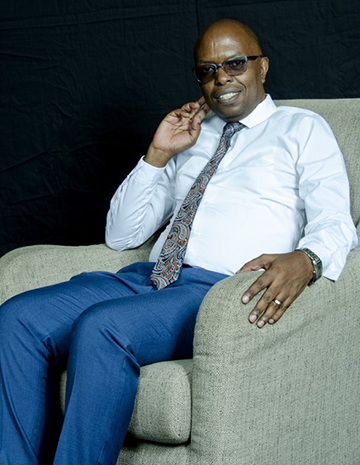Research
A fervent supporter of Africanised and decolonised education
As a result of his outstanding research into the history of indigenous education, Unisa’s Professor Johannes Seroto has deservingly earned a C2 NRF rating.

Professor Johannes Seroto
Seroto’s passion for the history of education among indigenous people can be traced back to his postgraduate studies when he first tackled research in this field. His master’s and doctoral studies made contributions in the field of colonial and post-colonial studies in Africa, which has gained prominence since the 1980s. Seroto remarks: “This domain had previously been under-researched, and my work contributed to the early body of knowledge.”
Seroto says: “My publications in accredited journals, especially in the area of history of education for indigenous people in South Africa, reflect my ongoing concern for the dissemination of such research findings.” He continues: “I have also edited a book titled Decolonising Education in the Global South: Historical and Comparative International Perspectives. It challenges the theorising of indigenous people from a Western perspective and the use of Western ideas, culture, politics and historical experiences.”
Turning to the rating, Seroto states that it is a milestone in his academic journey. “Apart from the funding opportunity that the rating provides, it creates a space for me to share my research with other scholars. It also works to the advantage of my college and the university in terms of benchmarking.” For him, being an NRF researcher is a confirmation that he is contributing new knowledge in the research space and he says that he is humbled by this acknowledgement.
“However,” Seroto suggests, “the research that we conduct in the college needs to be more informed by the notions of Africanisation, indigenisation and decolonisation.” He elaborates: “The same applies to teaching and learning and the engaged scholarship that we are involved in. The research that we do in our different spaces should incorporate African knowledge systems and indigenous African epistemologies.”
The impactful work continues
The Department of Basic Education (DBE) is in the process of introducing history as a subject from grade 4-12. Seroto believes that this exercise, although highly appreciated and applauded, is long overdue. He explains: “We had an expectation with the transfer of power to a majority government in 1994 that a new history writing would emerge as is the case in other parts of Africa.” Seroto is currently focusing on contributing to this process by excavating, in depth, the historical (economic, cultural and social) dynamics of indigenous people during the precolonial era.
According to Seroto, doing research during this epoch will instil and develop a global and continental African-centred historical consciousness to Africans. “My research will focus on the precolonial innovation that Africans (indigenous people) were involved in,” he says.
Seroto is also working on a research project titled The historic dichotomy underpinning hierarchies of knowledge in initial teacher education programmes in South Africa during the apartheid period (1954-1990) and the implications for current ‘Initial Professional Teacher Development’. He remarks: “It examines the history of marginalisation and hierarchisation of knowledges in initial teacher education during the apartheid period. This analysis is essential to prevent the current and future teacher corps from reproducing and legitimising ongoing inequalities.”
Future research goals
“The new history curriculum that needs to be developed in the coming two to three years is a radical overhaul of what is currently in existence,” says Seroto. He adds: “This task will require teachers to be well-equipped and developed in terms of historiography, pedagogical knowledge, language and archelogy. Institutions of higher learning have a mammoth task of producing teachers who will be able to teach the required history.”
Seroto says that he intends to focus on initial teacher preparation with emphasis on appropriate incorporation of decolonisation strategies such as indigenous pedagogy and cultural studies, thus introducing ways of disrupting Eurocentric tendencies prevalent in initial teacher education. “My research in the coming two to three years will focus on ensuring that the curriculum framework suggested by the DBE is incorporated in our offerings,” he concludes.
*By Nancy Legodi, Acting Journalist, Department of Institutional Advancement
Publish date: 2021/06/11

 Unisa co-hosts G20 community outreach in the Eastern Cape
Unisa co-hosts G20 community outreach in the Eastern Cape
 Unisans gain membership of prestigious science academies
Unisans gain membership of prestigious science academies
 Advocating for disability transformation through servant leadership
Advocating for disability transformation through servant leadership
 Unisa Press continues to illuminate the publishing space
Unisa Press continues to illuminate the publishing space